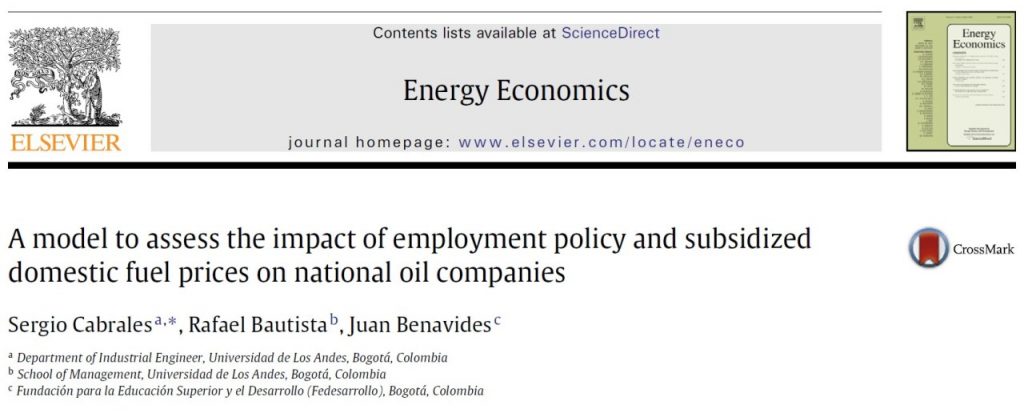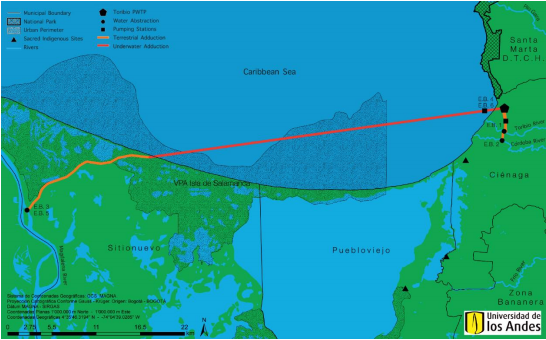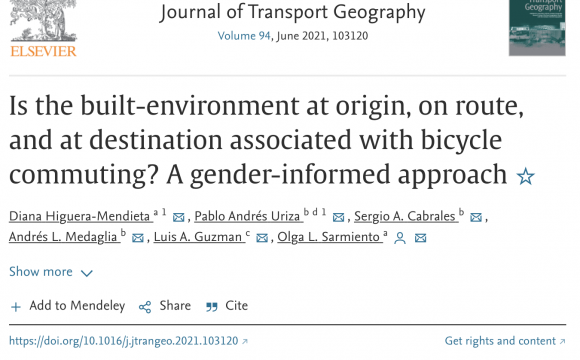National oil companies (NOCs) control international oil markets. Nevertheless, by the end of the 2000s, their share of the industry’s total revenues was only 35% while controlling more than 70% of the oil reserves and 65% of the gas reserves. Conventional financial theory prescribes that the proper management of an enterprise should seek the maximization of the NOCs’ profits. However, maximization of profits is not their only objective. Their targets often include non-commercial objectives, such as domestic fuel subsidies and employment. This paper develops a model to assess the impact of domestic fuel subsidies and employment on NOCs’ performance, which clarifies the trade-offs among non-commercial objectives and NOCs’ market value, production, and reinvestment. The model is applied and calibrated to the Colombian NOC to find the financial and operative effects of these non-commercial objectives for different scenarios.





